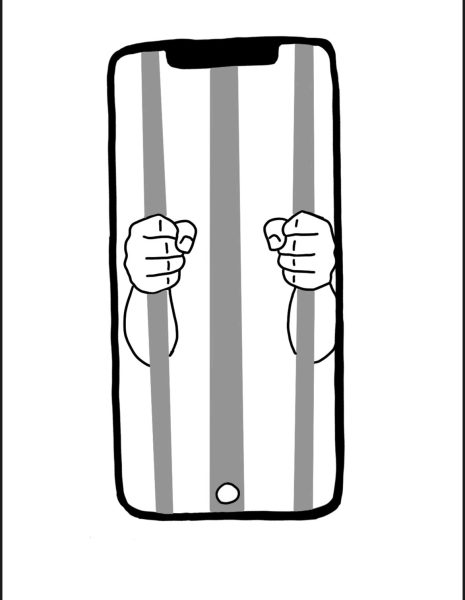For as long as I can remember, I’ve had a phone in my pocket with some type of social media platform downloaded, whether it was TikTok, Snapchat or Instagram. It has always been a constant factor in my life, even at a young age. With more children on social media platforms, the rate of mental health disorders such as anxiety, depression and body dysmorphia has risen to 20.5 percent in California. Social media platforms fail to protect the well-being of teenagers and contribute to the downfall of teenagers’ mental health.

According to Common Sense Media, an American research organization focusing on social media’s effects, teenagers have had a 17 percent increase in screen usage in the past two years. The addictive nature of social media comes from the dopamine surges that keep the brain stimulated and the desire for more content. According to a 2019 study by Harvard College, when an individual is using social media, the same part of their brain lights up as when they are actively using an addictive substance. Over the past 10 years, mental health disorders have increased by 13 percent globally, and this is directly correlated to quickly developing technology that creates an addicting cycle for teenagers to continue feeding into.
Sophomore Elam Schiller explains how social media usage has made him feel unmotivated.
“My use of social media has negatively impacted my mental health because its addictive nature makes me spend too much time on my phone. This has led to overwhelming feelings of anxiety [when I procrastinate],” Schiller said.
However, the issue of teenagers overusing social media isn’t going unnoticed. In 2023, Arkansas set the Social Media Safety Act, which requires minors to have parental confirmation before creating new social media accounts. Similar regulations need to be implemented to continue to support teenagers throughout the country. According to the Pew Research Center, most teens don’t support the enforcement of restrictions on minors’ usage of social media as much as adults do, with only 46 percent in support as opposed to 81 percent of United States adults in favor of additional restrictions. Many teens feel that they are able to personally manage their phone usage, but the addictive nature of social media is challenging to detach from, even for adults.
The app TikTok has a system in which users under 13 have a 60-minute screen time limit, and the app also requires a parental passcode to gain more time. That being said, these regulations are easy to work around, as teenagers put in fake ages. From personal experience, uploading TikTok and Snapchat at age 11 was no hard task; you can easily make yourself older and go about your scrolling. If social media platforms want to take full effect in reducing mental health issues, all platforms must implement multiple regulations, such as ensuring that children are the age they say and that time usage stays at healthy rates.
If social media platforms such as TikTok, Snapchat and Instagram enforced time limits on their apps, teenagers would break the cycle they are stuck in and spend more time doing hobbies that will benefit their mental health. Teenagers must put pressure on social media platforms and not let them get away with robbing us of our motivation, happiness and mental health. Until change occurs, young adults can use helpful resources, such as additional app extensions like Freedom, Flipd or AppDetox to break out from the tightening grip our phones have on us.



















